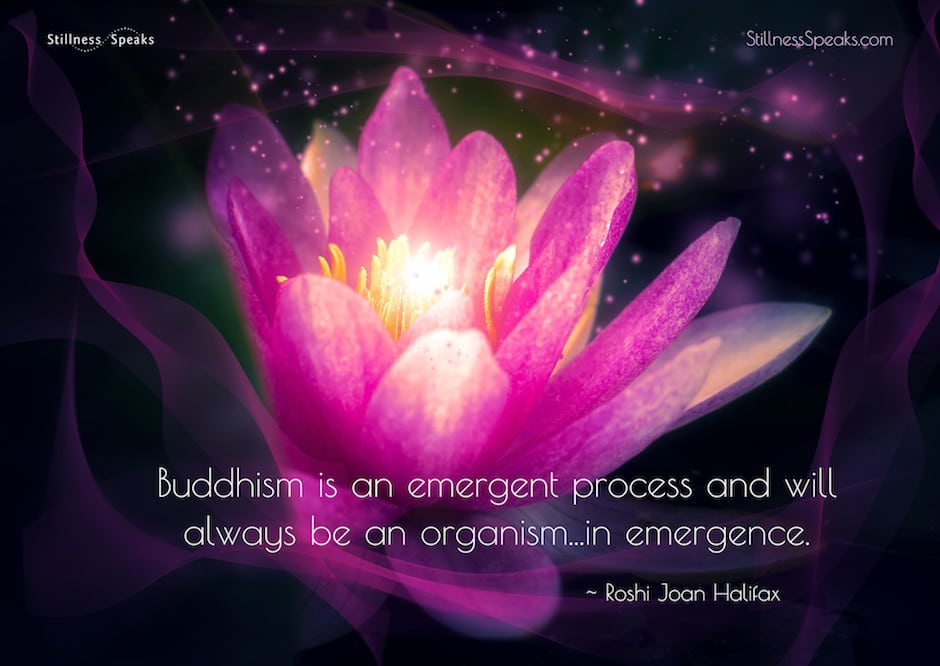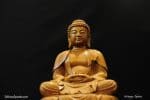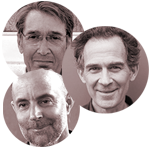Buddhism is an emergent process and will always be an organism that is in emergence. ~ Roshi Joan Halifax
Seven Buddhist teachers from around the world answered questions about the challenges Buddhism faces as it moves into the West. This post summarizes the seven responses to, How do you practically work with the cultural adaptation of Buddhism as a teacher? The intention of the writer of this book is to support the transition of Buddhism into the West so that its extraordinary beauty and wisdom may be accessible to more people. The seven teachers selected for this project represent the Therevadan, Zen and Tibetan traditions… Dzongsar Khyentse Rinpoche, Jack Kornfield, Roshi Joan Halifax, Ringu Tulku Rinpoche, Rob Nairn, Stephen Batchelor, and Jetsunma Tenzin Palmo.
The questions and answers were compiled into a short book, 7 Questions for 7 Teachers which is available as a free PDF download. The teachers’ responses are being summarized over several weeks. We hope this series entices you to read the entire book. Questions and teacher responses are italicized.
The third question…. How do you practically work with the cultural adaptation of Buddhism as a teacher and how do you help your students with this?
Dzongsar Khyentse Rinpoche – Bhutanese-born Tibetan Buddhist master, author and filmmaker involved in preserving Buddhist teachings internationally
Usually I emphasize the “view,” the mindfulness of the view, which is also the perspective from which I have answered your first two questions. As long as that view is intact, I’m not fussy about which spiritual tools and methods are used.
All guesswork that goes into his teaching is based on this view, which seems to be Dzongsar’s essential intuitive knowing
…if you know that by heading east you’ll reach New York, even if you don’t have clear directions, by simply walking eastwards you will eventually get there That’s what I mean by good guesswork.
Jack Kornfield – American teacher of Therevadan Buddhism, international author, and pioneer of meditation and Buddhism into America
Jack and his fellow western Vipassana teachers made specific choices about how to adapt Buddhism to western students…
Those of us who helped bring Insight Meditation to America chose to simplify the practices we learned in an attempt to offer a clear, straightforward form of Buddhist practice in the West. We left much of the Eastern culture, ritual, and ceremony behind in Asia. That is not because we don’t value it…. but we felt that for Americans it was an unnecessary barrier. It seemed to use that for our culture, the simplicity and straightforwardness of mindfulness and loving-kindness practice would speak best to the heart of those seeking practice.
Roshi Joan Halifax – American Zen Buddhist teacher, hospice caregiver, environmentalist and engaged Buddhist
Roshi Joan is confident that the essence of Buddhist teaching and practice will remain intact, and not be diluted or distorted by western influence. The basic teachings have retained their essence as Buddhism has moved through various cultural settings. Roshi is, in fact, quite interested in what she calls the “experiment that has gone on for 2500 years” as Buddhism has moved from India, to China, to Japan and now to the west.
I feel that Buddhism is a practice that allows one to turn attention to the meta-continuum and to observe what is arising within the mind… I think Buddhism is an emergent process and will always be an organism that is in emergence, and not so much a global top-down institution.
Ringu Tulku Rinpoche – Tibetan-born Buddhist master, non-sectarian, a scholar and author
Ringu Tulku stresses that the main practice of Buddhism is not about culture but about self-transformation… to increase happiness, better manage our emotions, become calmer and more compassionate, and gain some clarity of insight. He says it’s not about adopting a new culture, but about finding the essence through the culture. Where there are humans, culture is unavoidable.
Ringu stresses that we usually don’t know just how much our culture is present in our concepts and designations. So the important thing is to recognize…from a Buddhist point of view, all our concepts, all our ways of thinking have been learnt. We have been conditioned… when we understand that this is not truth but the… cultural influence, then we can look at it differently.
Rob Nairn – Zimbabwean-born teacher of meditation and Buddhism, author, and a pioneer of the adaptation of Buddhism for Westerners
Rob Naim recognizes that the western mind is trained to rationalize, intellectualize and theorize as soon as any feelings (particularly difficult feelings) arise. He helps western practitioners directly connect with their experience.
The big adaptation I’ve gone for is to try and express as much of Buddhism as possible in psychological terminology, but more importantly, to try to keep the conceptual approach to an absolute minimum. This enables westerns to get in touch with their own experience because this is where we tend to be weak…. My emphasis is always to come back to your practice, and then try and get in touch with your own direct experience.
Stephen Batchelor – British ex-Buddhist monk, author, scholar and leading secular Buddhist advocate
Stephen does his best to effectively apply Buddhist core teachings to the vast suffering in the world…
I do my best to honor and interpret the core teachings and practices that have been handed down since the time of the Buddha, while articulating them in a ways that respond effectively to the individual and collective suffering or our world today.
Jetsunma Tenzin Palmo – British born Tibetan Buddhist nun, ex mountain cave hermit, author and founder of nunnery for young women
Jetsuma emphasizes daily life as practice…
Nowadays the majority of people interested in spiritual matters are lay people, with families, jobs and social lives…it is important to recognize that daily life is our Dharma practice, rather than thinking that practice is when we are meditating or reading a spiritual book… If we can use our daily activities as an opportunity to develop generosity, ethical conduct, patience and kindness then this becomes a perfect Dharma practice.
Stay Tuned….The Next Question and the responses from our seven teachers is coming soon…
In the West particularly, there seems to be an emphasis on short-term gratification. Yet fundamental transformation with Buddhist methods seems inevitably slow. How can we work constructively with this situation?










